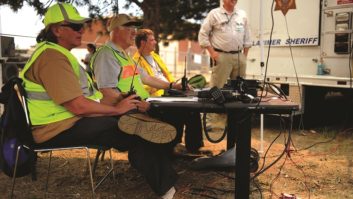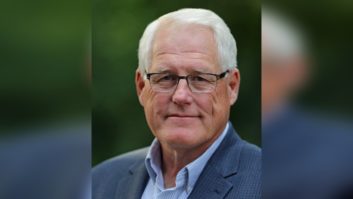What Went Down at the 2012 Radio Show?
Oct 1, 2012 12:14 PM, By Lee Petro
The discussions at The Radio Show in Dallas last month reflected the current state of the radio industry. With one eye on the current issues, and one eye looking at possible developments in the future, attendees were able to obtain a well-rounded review of where the industry is headed.
FM chips in smartphones: One of the most talked-about subjects was the activation of FM chips in smartphones. While there are a limited number of smartphones that already have activated chips, most smartphones contain inactivated FM chips, much to the surprise of the average smartphone user.
Both Gordon Smith, the president and CEO of the NAB, and Jeff Smulyan, the president and CEO of Emmis Communications, made impassioned arguments that the activation of the FM chips already present in smartphones would save consumers money by avoiding the costly data usage fees associated with most wireless phone contracts. Since apps stream audio programming over the wireless networks, frequent listening can extinguish a consumer’s monthly allowance quickly, and almost all unlimited usage plans have been eliminated by the carriers.
It was noted that none of the top 10 phones have activated FM chips, despite the fact that they have already been installed and sold with the phone. They also noted that the lack of activation limits the reach of broadcasters during emergencies when the wireless networks are overwhelmed or lose power. Since wireless carriers have sent text messages during emergencies to their subscribers to listen to broadcasters for detailed information, one could see that the activation of the FM chips already present in smartphones would greatly serve the public.
Royalty deals: Also discussed in Dallas was the recent decisions by Clear Channel and Entercom to enter into royalty agreements with Big Machine Records, a record label representing many country music stars such as Taylor Swift. While broadcasters have traditionally avoided copyright liability to the individual artists for playing their songs on the radio, the deal struck by the broadcasters will give Big Machine Records a share of the revenues from terrestrial broadcasts of songs, in exchange for reduced liability on the streaming of those songs on the Internet.
Broadcasters have fought to avoid industry-wide performance royalty liability for many years, but the decline of non-digital record sales has led artists and recording labels to look for new sources of revenue. Broadcasters who stream their signal over the Internet are required to pay royalties based on the number of subscribers that receive the stream. The deals between the broadcasters and Big Machine lower the royalty rate for digital streaming. While this arrangement will likely lead to an increase in payments to Big Machine in the short term, the overall split between terrestrial and Internet revenue is still skewed heavily toward over-the-air service. However, in light of the overall movement toward IP delivery of audio programming, broadcasters are betting that the long-term benefits of this deal will outweigh the initial impact.
Reflecting the evolving copyright treatment of Internet-only radio websites (i.e., Pandora), in late September, legislation was introduced that would reduce the copyright liability for such services. Noting that Pandora paid copyright royalties equaling more than half its revenue in 2011, the legislation would require the recalculation of the royalty payments to bring it in line with other services.
It is likely that we will see more attention to these matters, as more audio programming goes digital, and the delivery mechanisms evolve. Until that evolution is complete, however, one can expect that further skirmishes will erupt, especially if Congress attempts to pass performance tax liability on broadcasters in the future.
FCC Dateline

Oct. 16: Stations in Iowa and Missouri file License Renewal Application and EEO Program Report. Commence running License Renewal Post-Filing Announcements, continuing on Nov. 1 and 16. Noncommercial radio stations in Iowa and Missouri file their Biennial Ownership Report (FCC 323-E). Stations in Colorado, Minnesota, Montana, and North Dakota begin running License Renewal Pre-Filing Announcements, continuing on Nov.1 and 16.
Oct. 10: Stations place their Quarterly Issues/Programs List in their public file, covering the period from July 1, 2012 through Sept. 30, 2012.
Petro is of counsel at Drinker Biddle & Reath, LLP. Email: [email protected].
October 2012
Clear Channel Seatlle rebuilds, audio processing update, the Digigram Cancun 222-Mic is reviewed, and we compare nearfield monitors….












